Building Smarter and Safer for What Lies Ahead
Feature
From Bottleneck to Breakthrough: How 765-kV Transmission Could Save the Grid
Dramatic load growth and accelerating electrification are straining electrical networks across the country. Powerful 765-kV lines and substations could provide much-needed grid capacity and enhance reliability if they can overcome a variety of hurdles.
Feature
Delivering the Boom: Safety Is Paramount in Developing Increasingly Powerful Bombs, Bullets and Missiles
Feature
STEMulating the Minds of Future Generations
Featured Videos
Building Smarter and Safer for What Lies Ahead
Leveling Up: A Job Site Built for the Future
Elevating Expectations
Building Smarter and Safer for…
Leveling Up: A Job Site Built …
Elevating Expectations
All Stories
How to Take Charge of Your Fleet Conversion
Feature
Watts Up With the Grid: Enhancing Resilience Under Extreme Weather Conditions
Feature
Safety Is More Than Protocols, It’s Personal
Feature
Critical Minerals Rush: Get Ready for a Mining and Remining Bonanza 2.0
Feature
Hyperscale Data Centers and How to Power Them
Feature
Control in the Face of Cybersecurity Chaos
Spotlight
Old But Gold Solutions for New and Reliable Energy
Feature
Keeping Espionage at Bay: Protecting Sensitive Info With SCIFs
Trending Topic
How Telecommunications Drives the Future of Connectivity
Feature
Placing Humanity at the Heart of a Digitized and Electrified Global Transportation Network
TechBrief
Bulk Material Handling in Advanced Recycling: More Complicated Than You Knew
Video
Building Smarter and Safer for What Lies Ahead
Spotlight
Power Play: Accelerating Delivery of a Data Center Facility
Video
Leveling Up: A Job Site Built for the Future
Feature
How to Take Charge of Your Fleet Conversion
Feature
Unmanned Aerial Systems: Capturing Critical Data With Flying Technology
TechBrief
Going Below Zero on the Path to a Lower-Carbon World
Spotlight
Designing the B-21 Raider’s First Home
Video
Elevating Expectations
Feature
Mainstream Space Travel Is Looking Up
Feature
Going Above and Beyond to Bring Essential Resources Into Space
Feature
What’s New in Nuclear? Advancing Safety and Affordability
Feature
Supporting Emerging Clean Energy Technologies Through Thoughtful Partnerships
Video
Investing in an Energized Future
Spotlight
We Like IKE: Modernizing Kansas Transportation
TechBrief
Dividing Wall Columns Push the Boundaries for Midstream Efficiency
Trending Topic
Refining Your Renewable Fuels Approach for Success
TechBrief
Greener Skies Could Be on the Horizon
Trending Topic
An Electric Journey: The Transmission and Distribution of Renewable Energy
Feature
Strong Currents: Lithium-Ion Dominance Is Making Life Difficult for Other Energy Storage Technologies
Spotlight
Raising a Field of Solar Panels
Feature
Bringing Sustainability On-Site
Feature
Cyber Resilience Spurs Reassurance for Renewables
Feature
Accelerating on the Road to Electrification
Feature
Solid as a Rock: Streamlined Permitting Efforts Are Crucial for Carbon Storage Success
Spotlight
Highlighting Hydrogen for the Future of Decarbonization
Feature
Asset Management: A Framework for Maximized Value
Video
Dominating Digital Disruptions
Spotlight
Automated for Efficiency
TechBrief
Finding the Right Fit: Utilities Look to Innovative Bottom Ash Conversion Alternatives
Spotlight
Welcome Home: The Community of the Future
TechBrief
Making Waves With Smart Data: Monitoring Water Safety With Innovative Technology
Spotlight
Surging Ahead With Fluid Delivery
Feature
Going to Bat for Conservation
TechBrief
Turning Waste Into Worth
Spotlight
Raising the Elevation of a Substation
Feature
Play It Safe On-Site
Feature
Avoiding the Dreaded Shutdown
Spotlight
Testing and Monitoring: Optimal Green Infrastructure
Spotlight
Creating Waves in Smart Seaport Operations



.png)